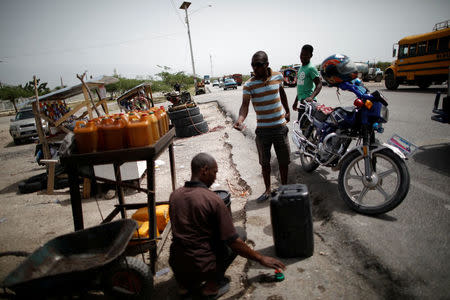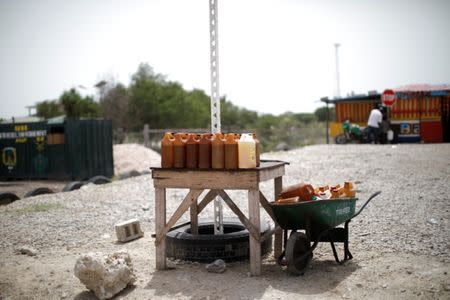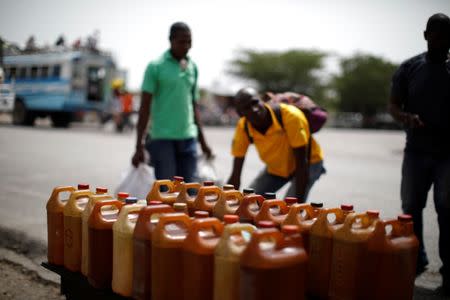Haiti should make plan to gradually lower fuel subsidies: IMF
WASHINGTON (Reuters) - The International Monetary Fund said on Thursday it expects Haiti to create a revised reform plan that will include a gradual lowering of fuel subsidies, even after four days of protests sparked by double-digit increases of gasoline, diesel and kerosene prices. Haiti's ministries of commerce and finance on Friday announced that fuel subsidies would be reduced to generate more tax revenue and better fund government services. The government says the subsidies disproportionately help wealthier people and tie up funds that could be used for other government services. It also says the cost of fuel in Haiti is the lowest in the Americas among non-oil-producing countries. The decision to lower subsidies, which translated to a 38 percent increase in gasoline prices and 47 percent hike for diesel, arose as part of an agreement with the IMF. The announcement proved deeply unpopular. Protesters barricaded roads, looted stores and set cars ablaze in the country's capital, Port-au-Prince, causing embassies to close and airlines to suspend flights to the Caribbean nation for days. On Saturday, Haiti's prime minister, Jack Guy Lafontant, announced the suspension of hikes in fuel prices, just one day after they were announced. Nevertheless, Gerry Rice, an IMF spokesman, told reporters that Haiti was working on a revised reform plan that the institution believes would still include a lowering of fuel subsidies, albeit in stages. Rice said the plan should also include measures to help the poorest in the country, such as vouchers for public transportation. "We hope that by implementing this revised reform strategy, this can help unlock additional support, continued engagement of the international community and other development partners, including the IMF ... to help Haiti through this difficult period that it's facing," Rice said. Minister of Finance Jude Alix Patrick Salomon said in a phone interview that the government was still evaluating the damage from the protests, and had not yet started on a plan for revised economic reforms. "We understand the need to no longer subsidize fuel," Salomon said. "But it's also important to understand that the losses we had this weekend are more than what we would gain from the new prices. We can't do it the same way next time." (Reporting by Makini Brice; Editing by Steve Orlofsky)




